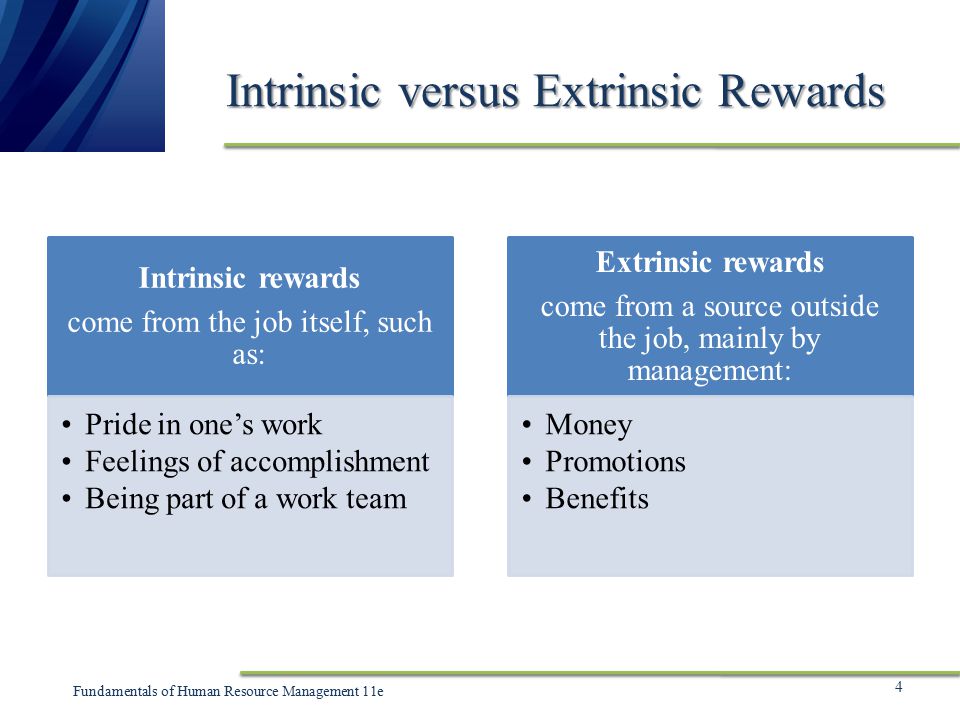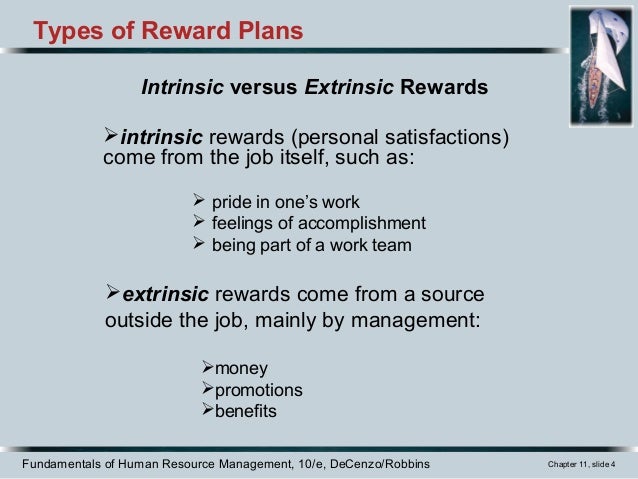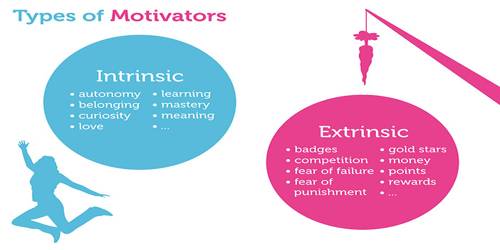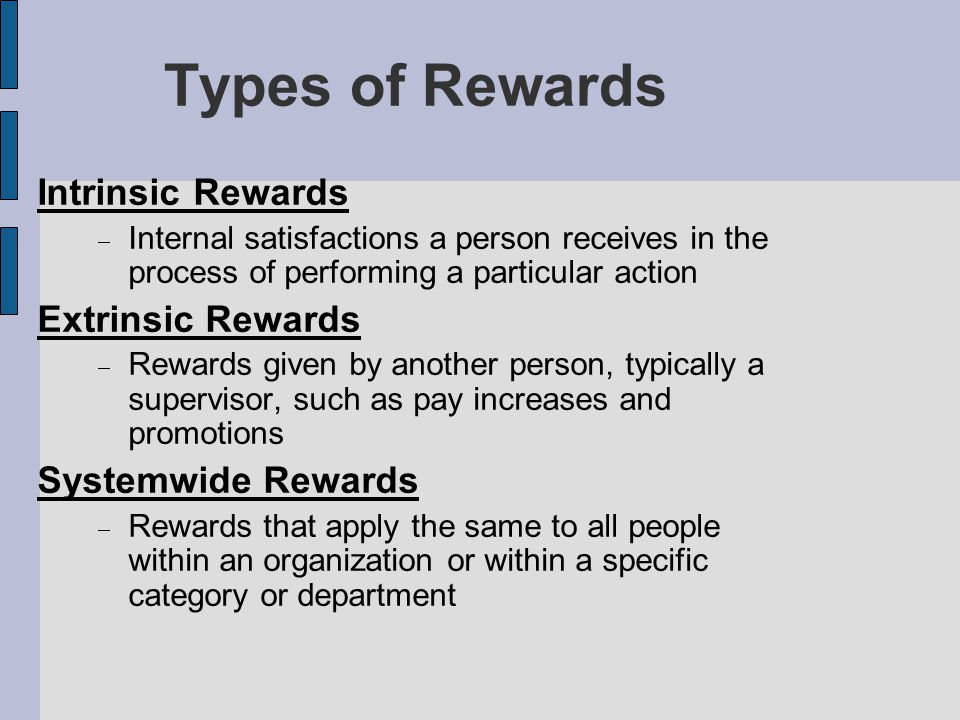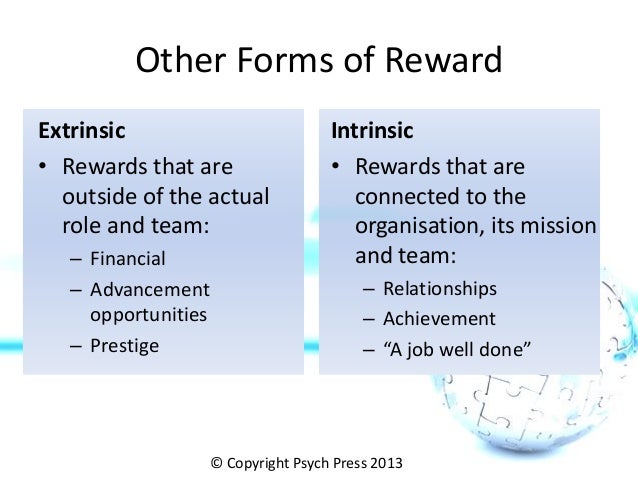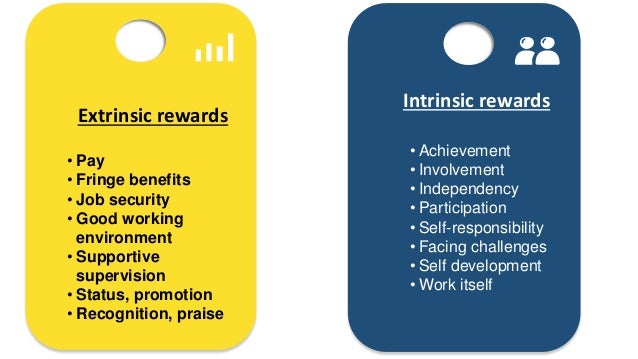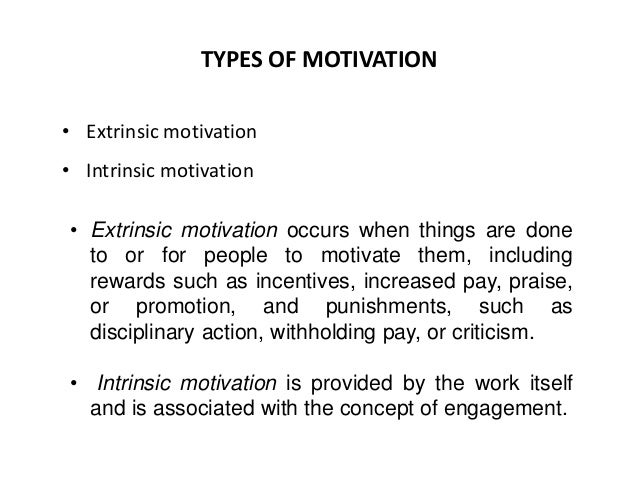Intrinsic And Extrinsic Rewards In Hrm

The activities and outcomes of employee s contribution in organization.
Intrinsic and extrinsic rewards in hrm. They cannot be seen or touched but are emotionally connected with the employees. Compensation is what employees receive in exchange for their contribution to the organisation. It includes all activities that have an impact on the intellectual emotional and physical well being of an employee and is not specifically covered by the extrinsic compensation system. Thus if an employee experiences feelings of achievement or personal growth from a job we would label such rewards as intrinsic.
Intrinsic rewards are the non physical rewards. The main objective was to focus the employee s perception about the organizational support and employees. Two groups were identified hrm practices influencing extrinsic motivation performance based rewards and recognition financial support of degree earning programs performance management and hrm practices influencing intrinsic motivation job design flexible working arrangements transfers and career development. In other words intrinsic rewards can be defined as the feeling of contentment one finds in the completion of any task.
Dennis coon and john mitterer explain that intrinsic motivation occurs when we act without any obvious external rewards. Extrinsic rewards can also include intangibles such as the ability to work remotely or an invitation to participate in a mentoring program. Types of reward management. Includes base pay incentives rewards attendance performance competence and benefits.
Extrinsic motivators are contrasted to intrinsic motivators which are internally focused rewards or punishments based on an individual s personality make up and humanity. Their common thread is that extrinsic rewards are external to the job and come from an outside source mainly management. Intrinsic reward is directly related to job performance as a successful task. These types of rewards satisfies basic needs like security and survival pay treatments and conditions.
Intrinsic reward is the form of motivation an employee has within himself that comes from a passion or interest in doing a job well done. For example someone may eat chocolate or partake in exercise because of the associated endorphin rush. Extrinsic rewards are useful if employees are able to satisfy their needs indirectly through financial rewards and incentives for past performances. Data were collected from banking sector of faisalabad pakistan.
The purpose of this study was to measure the effect of intrinsic and extrinsic rewards on employee attitudes job satisfaction and organizational commitment as well as the mediating role of perceived organizational support. Intrinsic rewards and extrinsic rewards effects on job satisfaction rewards system is designed by keeping in mind the organizational productivity direction affected by the re wards in positive and negative manners.


